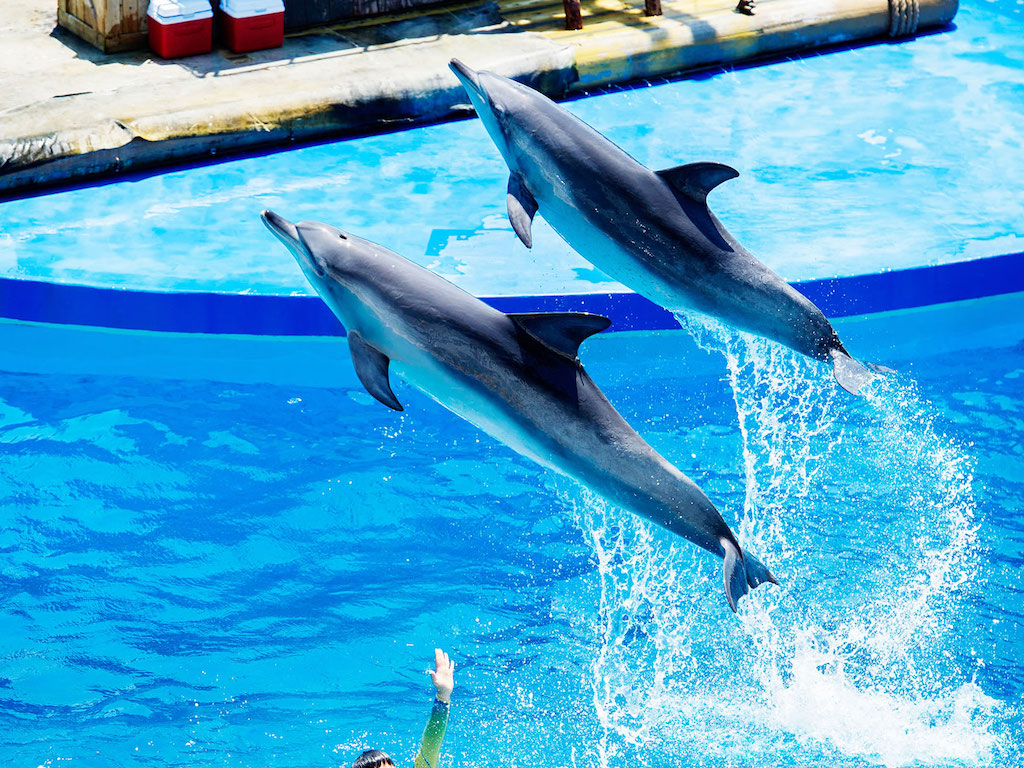3 Mins Read
June 2020 Update: The Hong Kong government has approved an HK$5.4 billion (US$697 million) bailout for Ocean Park. Read about how Ocean Park fuels the mainland Chinese demand for Taiji dolphin drive hunting here.
After 3 months of shuttered doors due to the coronavirus pandemic, Hong Kong’s original marine theme park Ocean Park announced that they may face bankruptcy by June this year. Speaking to reporters on Monday (May 11), the Commerce and Economic Development Secretary Edward Yau said that HK$5.4 billion (US$697 million) is needed to save the park from closure, and the proposed government subsidy will be submitted to the lawmakers this week. Citizens have voiced indifference to the potential end of Ocean Park, while animal welfare activists have long called for the end to the theme park’s unethical wild animal captivity and artificial breeding programmes.
Ocean Park, which has been closed for over 3 months due to the pandemic, announced on Monday (May 11) that their funds will only sustain the theme park until June. The park, which has operated since 1977, is now asking for HK$5.4 billion (US$697 million) to meet its operating expenses and loan repayments for the year as it has generated zero income during the crisis. The government will be asking the Legislative Council on Friday (May 15) to approve the loan to help the park stay afloat.
Earlier this year in January, Ocean Park had asked the government for a HK$10.64 billion allocation (US$1.37 billion) to support its new redevelopment plan to shore up more visitors after a four-year-long downturn. The proposed plan would shut down its exploitative dolphin and sea lion show and replace it with 26 new amusement rides, following years of pressure from environmental and animal rights activists.
Prior to the plan to scrap animal shows, Ocean Park staunchly defended its captivity and artificial breeding programmes, saying that it helped to educate the public about marine life. Marine ecologists have pointed out that mammals kept in tanks – especially those that are forced to perform for human entertainment – do not eat, socialise, reproduce, exercise or behave naturally, and often have to be treated with ulcer and antidepressant medication to relieve them of their suffering.
Commerce and Economic Development Secretary Yau said that this latest cash injection request is different from the previous revamping plan, and is aimed to provide “contingency money” to help keep the park running.
Citizens have been critical of the government’s plan to keep the animal theme park afloat, saying that the park should close down because it does not serve the public and that previous deaths of dolphins have exposed the cruelty involved in running the park.
“I think it should be closed and the government should not subsidise the park. There have been cases of the dolphins dying in their facility, and the land can be repurposed for something that serves Hong Kong taxpayers, such as building affordable flats for people,” one Hong Kong resident who chose not to be named told Green Queen.
Last week, Ocean Park’s chief executive Matthias Li said that the park had not set a date to reopen, but will cap the number of daily visitors to avoid an outbreak. Once the park reopens, discounts will be introduced to Hong Kong residents in a bid to help alleviate the cash-strapped park’s financial difficulties.
Lead image courtesy of Ocean Park.



